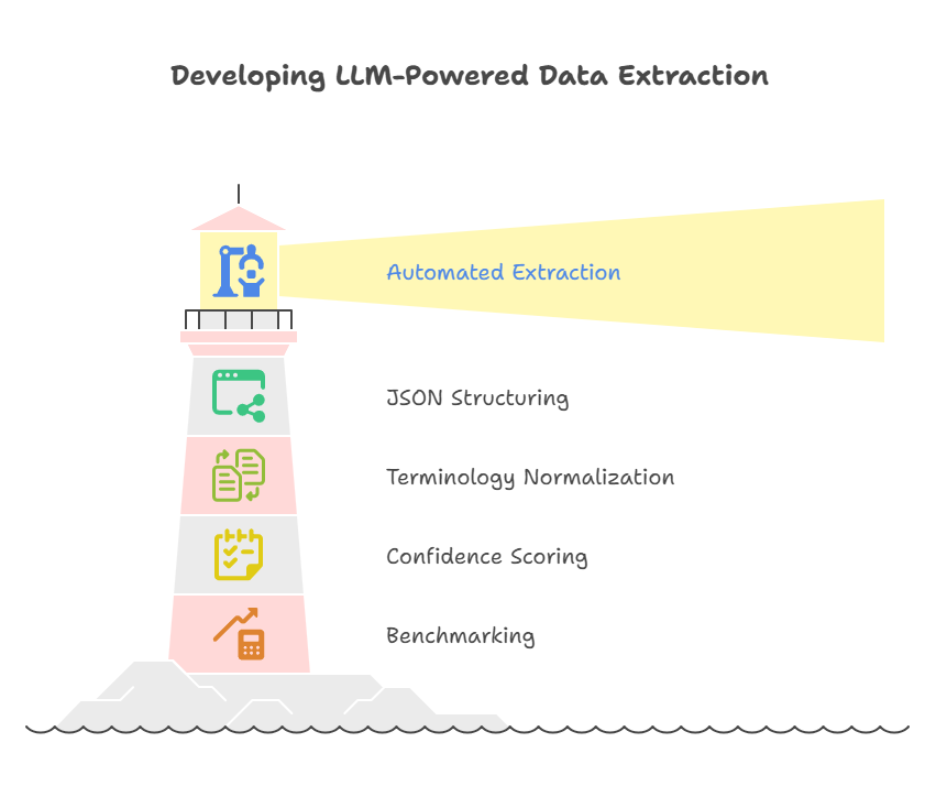Podium Automation is a next-generation industrial automation company focused on accelerating electrical design workflows through intelligent software and AI. By reimagining how engineers interact with technical data, Podium enables organizations to design and deploy industrial control panels with unmatched speed and precision.
Podium Automation is pioneering the future of industrial control panel design. A critical bottleneck, however, lay in extracting component specifications from unstructured manufacturer PDFs, an error-prone, manual process that slowed engineers and fragmented workflows.
The problem: fragmented PDF specs slowed engineering workflows
Podium’s electrical engineers relied heavily on manufacturer-provided specifications such as amperage, voltage, mounting options, and connection types to make design decisions. However, these critical details were buried in unstructured PDFs, each formatted differently and often using inconsistent terminology across manufacturers. Extracting the right information meant engineers had to manually scan through lengthy documents, re-key values into internal systems, and cross-check for accuracy.
This repetitive and error-prone process consumed hours for each device type, introduced the risk of missing or mis-typed specifications, and created fragmented data silos. As a result, Podium’s engineering workflows slowed down, making it difficult to achieve the company’s goal of delivering industrial control panel designs at 10x the industry speed.
The solution: twinning ML and LLM models for a PDF data extraction engine
goML partnered with Podium to develop a five-week proof of concept (PoC) that automated the extraction of component specifications by twinning ML and LLM models for PDF data extraction via Amazon Textract and Claude Sonnet 4 on Amazon Bedrock.
Automated information extraction
- Amazon Textract for OCR for accurate recognition of content
- Used LLM for PDF data extraction to pull structured fields from 3 device types (e.g., circuit breakers, PLCs, terminal blocks)
- Parsed attributes such as amperage, voltage, number of pins, and connection type
JSON structuring and API output
- Converted outputs into structured JSON aligned with Podium’s internal schema
- Delivered via a RESTful FastAPI endpoint for the extraction solution
LLM-powered terminology normalization
- Leveraged Claude Sonnet on AWS Bedrock to handle varied manufacturer language without per-device retraining
- Ensured consistent, structured outputs across different manufacturer PDFs
Reflection and confidence scoring
- Built a validation pipeline that cross-verified extracted outputs against benchmark documents
- Provided field-level confidence scoring, logging anomalies for human review
Benchmarking and testing
- Compared outputs against ground-truth PDFs
- Achieved performance parity with human-processed data extraction benchmarks

The impact: accelerated PDF data extraction
By implementing an LLM for PDF data extraction, Podium Automation transformed a manual, error-prone process into a fast, automated pipeline. Engineers gained immediate access to standardized, queryable component data, reducing bottlenecks and improving productivity.
- 80% faster component specification extraction versus manual processes
- 85%+ accuracy, matching benchmarks of manually processed PDFs
- Standardized JSON outputs enabling seamless database integration
Lessons for other organizations
Common pitfalls to avoid
- Depending solely on engineers for manual PDF data entry
- Ignoring manufacturer terminology differences in device documentation
- Building extraction without a reflection pipeline or confidence scoring
Advice for teams facing similar challenges
- Start with LLM for PDF data extraction across 2–3 device types to validate quickly
- Use LLM-powered normalization to unify varied manufacturer specifications
- Invest early in JSON schema alignment for smooth integration into databases
Want to accelerate engineering workflows with LLM for PDF data extraction?
Let GoML build your AI-powered specification extraction engine, just like Podium Automation.

.png)
.png)


